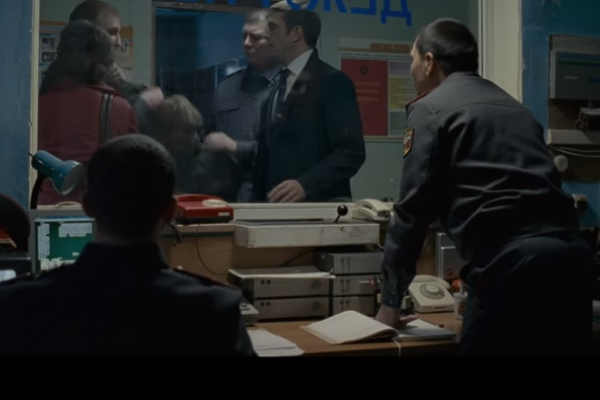In the struggle for justice, it’s easy to feel like you’re running on a hamster wheel of progress — exhausting yourself without getting anywhere. There are times when you — or people you love — question your motives behind the fights you pick. There are times when you want to yell until you’re hoarse at crowds of people who appear to care about nothing more than getting to the end of the day. What is our struggle really about? Does anyone care? And if God cares about us, why do we suffer?
Andrey Zvyagintsev’s film Leviathan, which recently took home the Golden Globe for best foreign film, isn’t a movie about a great wrong being made right. Its story, about a man in rural northern Russia trying to keep a corrupt local mayor from seizing his house, is small in scope. But it’s fully relatable to anyone who’s worked against a system that’s left them battered, bruised, and utterly spent. Leviathan’s target is corruption in Russia, but its themes of pride, personal struggle, and frustration are universal.
When we meet Kolya, the film’s protagonist, he’s in the midst of a long legal battle. He’s about to lose the house he built to the town’s mayor, a paranoid man obsessed with his own job security. Kolya’s already lost in court, but enlists the help of former army buddy Dimitri, a high-powered lawyer, to help him with an appeal. After the appeal’s failure, and some nasty bullying from local officials, Kolya is hit with a seemingly endless avalanche of humiliation and personal catastrophes.
But Leviathan isn’t just a domestic tragedy. Along the way, writer-director Zvyagintsev makes some thought-provoking points about the players on both sides of the story, and the nature of the particular fight they’ve chosen. It’s a film packed with symbolism and big questions of the kind that can stew in a viewer’s head for days, even weeks afterward.
The fishing village depicted in the film is a run-down hamlet characterized by an impressive amount of skeletal remains — and not just the kind that live in the closet. It’s strewn with ruined buildings, wrecked boats, and massive whale skeletons. In our world, the best architecture serves as a testament to man’s accomplishments, but the buildings and bones of Leviathan do exactly the opposite. They’re a constant reminder of decay and the temporary nature of what we mere mortals spend so much energy building and fighting over.
Zvyagintsev also uses his film to make pointed remarks about the Orthodox Church, though not, it’s worth pointing out, about the spiritual struggles of his characters. The director’s criticisms are structural and political. The church depicted in Leviathan is a church that does very little good for those who truly need it. The priests’ platitudes and nationalistic sermons are much better suited to those already in power, like the devout mayor, whose devotion takes the form of generous donations and regular get-togethers with the bishop.
In the last scene of the film, the mayor attends church with his family. During the service, he bends down to his wide-eyed young son and murmurs, “God sees everything.” On the surface, it’s an offhand remark, meant to scare a child into obedience. But after everything that’s happened — all the threats, destruction, and pain he’s caused — it’s fair to wonder what it is this man thinks God sees in him. And, more to the point of Leviathan, it’s also fair to question how we should feel about any system, be it dictatorship or democracy, that encourages such a skewed view of righteousness.
WATCH the trailer for Leviathan here:
Abby Olcese is the Advertising Assistant for Sojourners.
Got something to say about what you're reading? We value your feedback!
